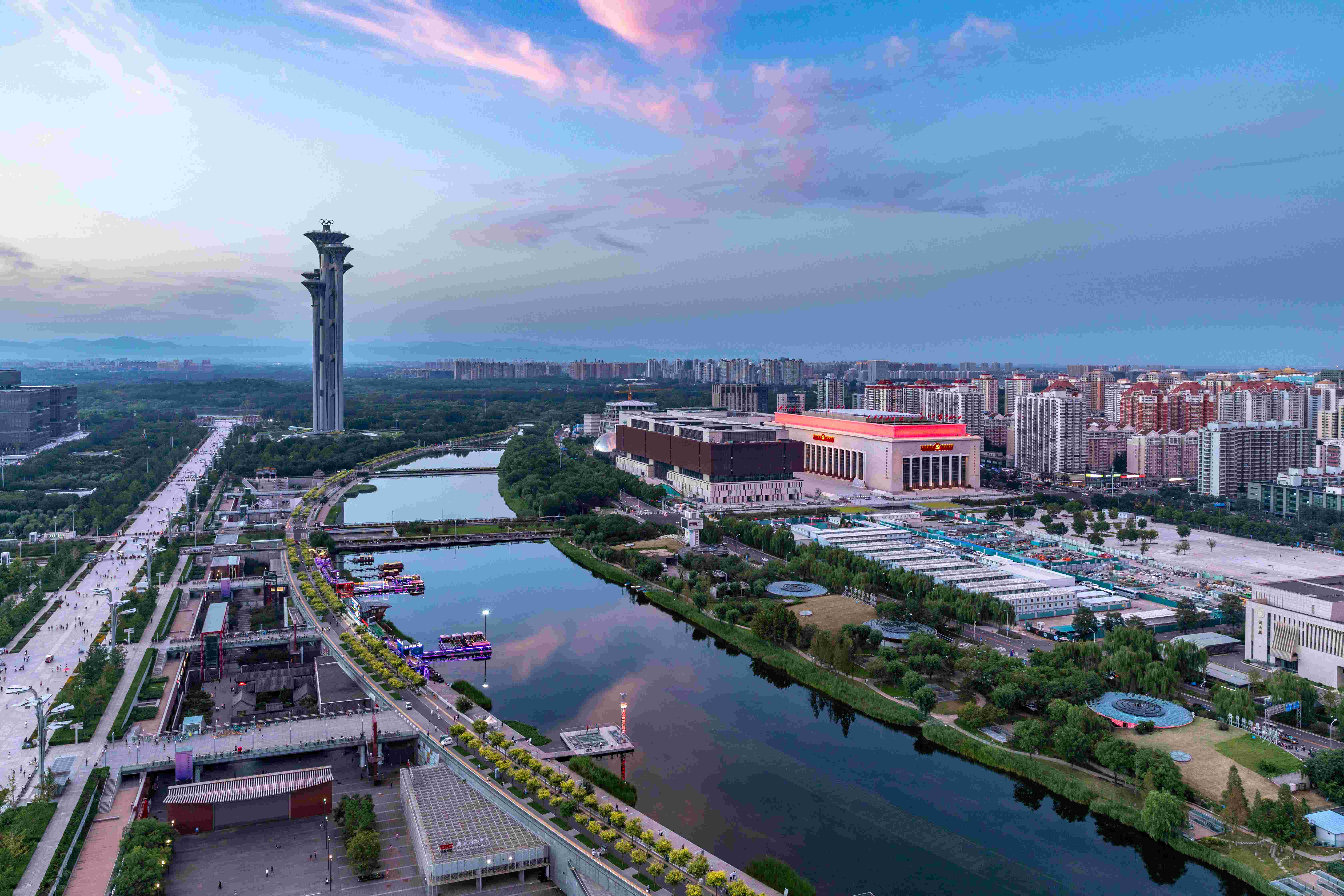
Beijing Winter Olympic Park. (PHOTO: XINHUA)
The scientific and technological achievements such as 5G studio in high-speed trains, zero-gravity beds, and smart restaurants with robot chefs have become eye-catching highlights of Beijing 2022.
Even after the Games, these technologies will boost the nation's sustainable development, creating lasting benefits for the people in the host cities and regions.
In fact, from assisting winter sports promotion to boosting economic opportunities and proposing sustainable solutions,Beijing 2022 has already begun bringing benefits to the people.
Intelligent robots' vital role
At the opening ceremony, the most eye-catching one is the first ever underwater Olympic torch relay between two submersible robots.
During the Games, various intelligent robots have worked hard to provide contactless services.
Robot chefs are deployed in smart restaurants at the main media center to minimize contact. Once the meal is ready, the AI system plans out the optimal route, and the dish will be transported on a track and arrive at the table. Smart burger machines, automatic woks, and robot bartenders are also common sights.
To meet medical security needs at the Games, the intelligent medical robots provid emergency medical protection and service in competition zones.
Robots perform more effectively in epidemic prevention and control. AI-powered disinfection robots with a long battery life, automatic obstacle avoidance and self-charging function, have provided various contactless services at competition venues, saving a lot of manpower. They will be widely used in cleaning and disinfection of public areas after post-Games.
Sustainable competition venues
Beijing 2022 aims to create abundant new legacies from the Games. Besides making good use of existing facilities, the newly-built ice and snow venues will be open to the public for free or at low prices.
By making use of natural carbon dioxide cooling technology for the first time, the National Aquatics Centre (known as the Water Cube) will continue to host ice sports, swimming events and large cultural performances, offering both multi-purpose and long-term use.
Owning two venues of the National Alpine Skiing Centre and the National Sliding Centre, Yanqing competition zone will expand its tourism to outdoor culture, leisure and sports activities and offer opportunities for both summer and winter sports when the Games are over.
The non-competition venues will also leave an impact on their surroundings. The main media center will continue to operate as a conference and event facility, while the Yanqing and Zhangjiakou Olympic Villages will become hotels, apartments and a business cluster to serve the region's booming winter sports.
Green legacy for society
The green legacy of Beijing 2022 will also boost sustainable development.
Accelerated by the Games, the Zhangbei flexible direct current grid project uses wind and solar energy to transfer electricity from Zhangjiakou to Beijing. It will continue to deliver clean electricity to Beijing residents and boost the city's use of clean energy after the Games, expecting to save 49 million tons of standard coal and 12.8 million tons of carbon dioxide emissions each year, according to official data.
Sustainable transports facilities are also a legacy of the Games. At Beijing 2022, fuel-efficient vehicles account for 100 percent of all passenger cars and 85 percent of all vehicles. After the Games, the charging facilities built at competition venues and along roads between Beijing and Zhangjiakou will be operated for community use, meeting the energy supply-demand needs of hydrogen fuel and pure electric vehicles in the future.
After Beijing set a target to hold a high-tech Winter Olympics, 133 types of technologies in a number of key areas have been applied in the early part of 2021. Since October last year, another 228 technologies have been tested and applied in test events, athlete training schedules and preparatory work for the Games, according to Wu Yuanbin, an official from the Ministry of Science and Technology.
These dazzling technologies, some of which haven't been widely applied in our people's lives yet, have received increased exposure through Beijing 2022 and expects to create more benefits for Chinese people and the global community.
Source: Science and Technology Daily


